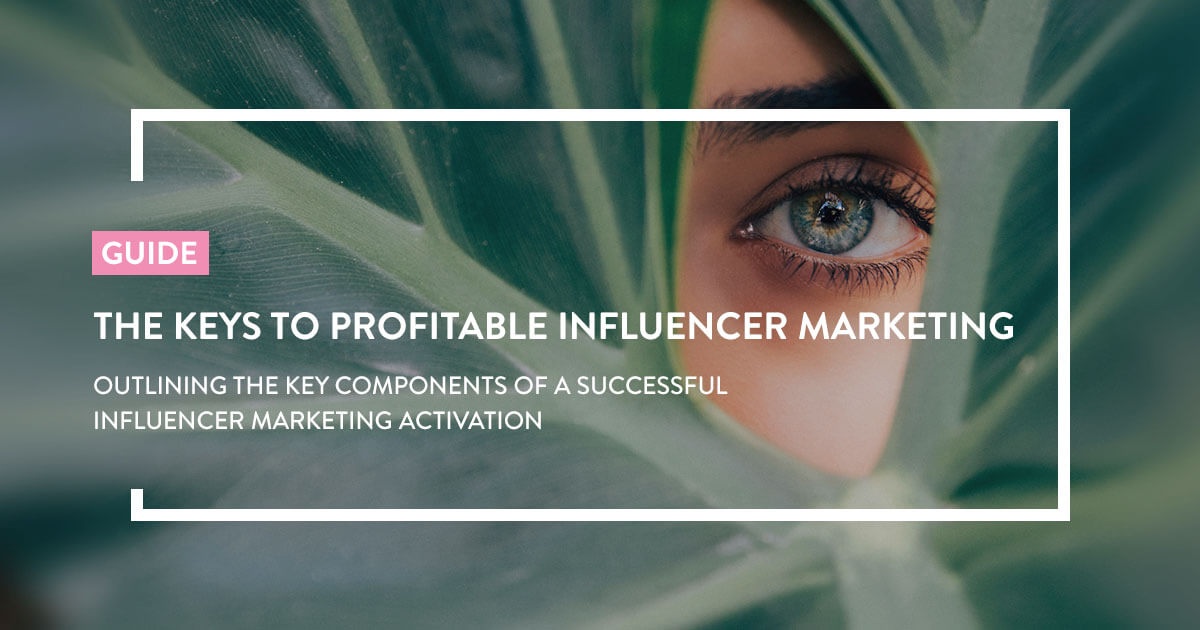Today, most of us associate influencer marketing primarily with traditional consumer marketing, i.e. B2C. However, influencer marketing can serve as a powerful tool for B2B brands as well, in their quest to reach and win their target audience. In this blog post, we highlight four reasons why influencer marketing can work wonder for B2B brands too.
B2B influencer marketing strategy
Influencer marketing is a powerful channel that can work just as well within B2B as it does in B2C. The essence of this argument lies in the fact that the digital landscape keeps expanding and people are still being influenced within their decisions. We’ll cover more on this further down.
Influencer marketing for B2B companies
It’s common knowledge by now that influencer marketing can help any company increase its brand awareness, yet many B2B firms still aren’t utilising influencers enough. Here are four reasons why influencer marketing is beneficial for B2B companies:
People influence other people – regardless of industry
Influencer marketing is based on the idea that the most effective marketing is when you hear it from someone you trust and actively follow. This philosophy applies regardless of what you work with. That is, whether you work with B2C or B2B, there is a built-in mechanism in us that makes us affected by people we relate to and have confidence in. This digital word-of-mouth, which influencer marketing facilitates, works just as effectively in B2B. Of course, the B2B buying journey looks a bit different compared to B2C, meaning you need to adjust your strategy accordingly.
Tomorrow’s B2B buyers are raised in the digital media landscape
As younger generations, such as millennials and generation z, come into decision-making positions, it gets increasingly important to include influencer marketing in your marketing strategy – even for B2B companies. These people are grown up with social media and follow influencers in various areas of interest, both for work and personal use. In order to keep up with and reach your target group, it is important to think new ideas and challenge old ways of doing things – otherwise, there is the risk that another brand, that communicates with the buyers on their terms, becomes more relevant. Ask yourself: do those trade shows and conferences, which you travel around the world to participate in, still give you bang for the buck – or are there other, more effective, ways to reach your target audience?
Influencer marketing can complement and enhance your other marketing efforts
To succeed with influencer marketing, it is important not to see it as a separate element, but as an integrated part of your media mix. When it comes to B2B brands, there are several ways influencer marketing can complement and enhance your other marketing channels, such as social media and paid search traffic. Since the buying journey for B2B is often relatively long, ranging from a few months to a couple of years, you need to appear in your buyers’ world in a consistent manner – then you increase the chances for your brand to be top-of-mind when it is time to make a purchase decision. By collaborating with relevant influencers, whom your potential buyers actively follow and relate to, and at the same time appear in their social feeds and on Google when they search for related keywords, you increase the chance of getting their attention in the long term.
You (still) have the chance to gain a first-mover advantage!
Finally, another reason why B2B brands should consider testing influencer marketing is that there is still a chance to gain first mover benefits. In the market for B2C products and services there are several examples of companies that have managed to gain a huge competitive advantage – thanks to the fact that they were first movers when it comes to including influencer marketing in their marketing mix. Take the chance to position your brand at the leading edge of your your industry. See the fact that influencer marketing in B2B is fairly uncharted waters as an opportunity, rather than an obstacle.



